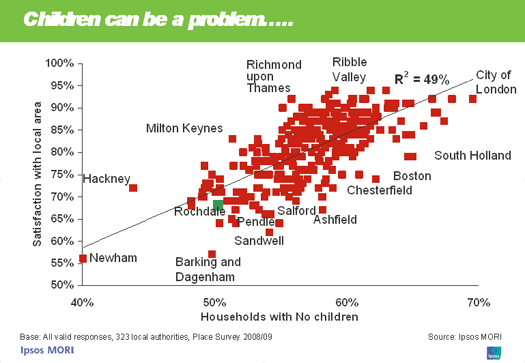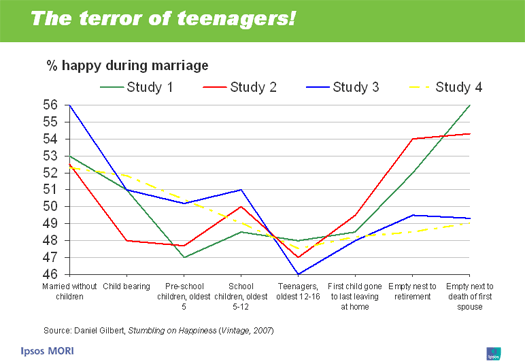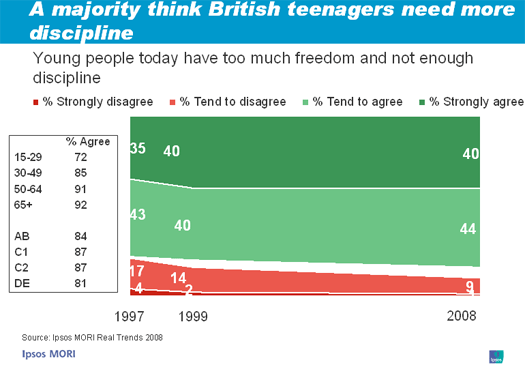The challenge of our young people
Whoever wins the election, and whatever the next regime has in store for public services, one key issue will remain our young people. In Britain they are a problem. Indeed, the more young people in an area, the higher the level of concern about anti-social behaviour, and the fewer children present, the happier residents are with where they live, as Ipsos's analysis of the Place surveys that all English Councils completed in late 2008 shows:

In America Daniel Gilbert, a Harvard professor, has shown in his book "Stumbling on Happiness" how parents will be most miserable when their children are aged 12-16, as the chart taken from it below shows:

And in Britain, in a country that is actually quite divided over how much the state should intervene in our lives, or over how much inequality is tolerable, when it comes to young people there is - in principle at least - complete agreement. At Ipsos we find nearly all Britons agree that young people have "too much freedom and not enough discipline", including most teenagers themselves. Virtually everyone agrees that "parents need to take more responsibility for their children" - only 1% strongly disagree.

We are scared of, and about young people; whereas in Germany 64% say they would intervene if they saw a small group of 14 year old boys smashing up a bus shelter, in Britain only 34% would. So although our recession is now abating, reduced public spending is going to have to continue to try and address our widespread concern about our young people, real or imagined.
It remains a key driver of perceived quality of life, and creative solutions that really engage whole communities are what everyone wants - the devil however, is in the detail. The Conservative party has talked of "rolling back the welfare state to allow the welfare society to flourish" in response to feelings that welfare dependency have become entrenched. It is certain that spending on many services will have to be "rolled back". But what that will mean for our young people and their behaviour must be challenging.
Our evidence is that where both authorities and communities engage with young people one can see real improvements - but achieving this systematically or at any scale will be a huge challenge. However one thing is sure - in the coming period we are all going to have to take more personal responsibility for a whole lot of things.
Ben Page is Chief Executive of Ipsos



